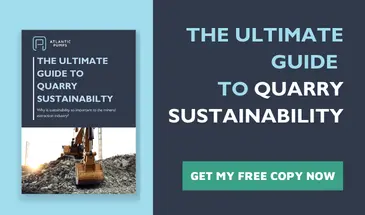Reservoir Water Management System Provides 1 Million People With Drinking Water

Project Overview
This project was based at a Water Treatment Works which treats raw water from a local reservoir, and provides quality drinking water to 1 million domestic, commercial and industrial customers. The raw water is fed by gravity aqueducts from a lake to the nearby reservoir. From here it is gravity fed 50 miles by aqueduct pipelines to the supply service reservoirs in nearby towns.
The Water Treatment Works was undergoing an extensive project to upgrade the plant to a 21st century standard. Once the upgrade project is complete, the works will be able to provide up to 210 megaliters per day of wholesome drinking quality water to the latest standards well into the future.
Challenge
The contractor was tasked with carrying out the modification and upgrade to the existing rapid gravity filters (RGFs) from direct filtration to conventional post clarification filtration. The materials from the redundant sand filters would then be recycled and reused where appropriate with the aim of having no waste going to landfill.
A river flows near the site and there was a risk that any uncontrolled drainage from the site may end up there. With this in mind, it was essential that dealing with surface water run-off and groundwater during excavations was carefully controlled. Excavations, especially where there is a risk to existing plant and water supply, have to be very carefully controlled. This presented a major challenge for the contractor because works were taking place during a period of record high rainfall.
Solution
Due to the sensitive nature of the site, RVT worked closely with the contractor to better understand the expected contaminants and the water flow volumes to be treated.
RVT performed a free site survey, took water samples from site and carried out jar tests to better understand what type of chemicals and dose rate would be required. The jar test is a laboratory procedure that simulates the coagulation and flocculation process using differing chemical doses. The purpose of the procedure is to estimate theminimum coagulant and/or flocculant dose required to achieve adequate water quality.Coagulants are primarily used to remove extremely small suspended particles in waterwhich do not settle rapidly. The flocculant primary use is to bind and agglomeratesuspended particles in water to form large particles to assist in their settling andfacilitate removal through particle and water separation processes. If a jar test is notperformed, the site may risk chemical overdosing or underdosing, which can bedetrimental to the receiving water body.
Taking the result of the jar test into consideration, RVT proposed a bespoke water treatment solution. This included EnviroHub® TT10 Treatment Tanks to pre-treat surface water run-off and groundwater with coagulant and flocculent polymer to improve the settlement of solids. EnviroHub® Chemical Dosing Systems were used with the water treatment tanks to automatically add the correct dose of flocculant and coagulant. CO₂ dosing for pH correction was also part of the water treatment process.
EnviroHub® HL50 Lamella Plate Settlement Tanks were used to remove suspended solid particles from the water. EnviroHub® Monitoring Units were installed to generate automatic text and email alerts to warn the site team when the system was approaching the set compliance limits. This gave the site team peace of mind that they would remain compliant with their environmental water discharge permit.
RVT initially supplied two water management systems capable of treating 14l/s each, to manage water from excavations, as well as surface water run off from site, and the systems performed outstandingly. However, during a period of higher rainfall, the client requested two extra EnviroHub® systems to deal with the higher water flow volumes. The water management systems gave the contractor peace of mind that water was being effectively managed on site.
Contact RVT Group
This case study was produced and originally issued by RVT Group - construction industry partners for EnviroHub. To contact them directly, please call 0808 178 3286 (7:30am to 4:30pm Mon-Fri).



